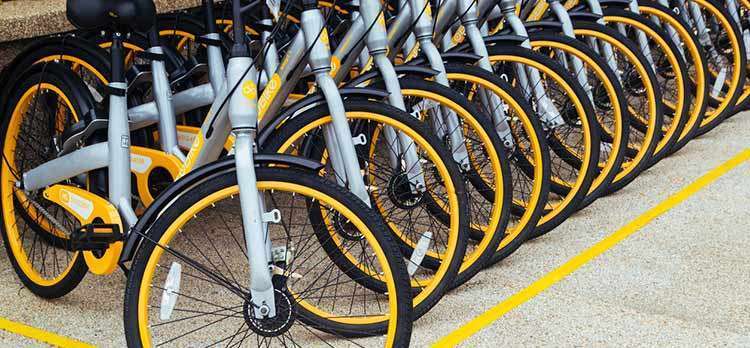TL;DR – Definitely not.
By now, you have probably heard of this company called oBike. It recently ended its operations in Singapore. The excuse reason it gave for ending its operations in Singapore was that it would be too costly for them to meet regulatory demands to remove illegally parked bicycles within a stipulated amount of time and install QR code geo-fencing technology that would require operators to continuously charge users who do not park their bike in designated areas.
This saga prompted the South China Morning Post (SCMP) to publish an article with the title: “SINGAPORE’S OBIKE GETS ON ITS BIKE: PROOF YOU CAN ‘KILL YOUR INNOVATORS’?” In that article, it quoted a certain Jeffrey Towson, professor of investment at Peking University Guanghua School of Management as saying:
“Asian cities should take note of Singapore and Melbourne as how not to behave. Innovators and risk-takers are rare. Singapore has perhaps just shown that you can in fact kill off your innovators. They should have been trying to help oBike stabilise. In contrast, China was tolerant with its native bike-sharing companies and Mobike and Ofo have thrived.”
oBike was destined to fail
I personally think that’s a stupid thing to say. oBike failed in Singapore not because of regulations. In the parlance of tech startups, oBike was, in my view, a less-than-ideal product-market fit.
Has anyone noticed that Singapore is quite a horrible environment to cycle in? Our warm and humid weather makes it very uncomfortable to cycle in Singapore. Then there are the roads. The roads just aren’t designed for cycling. And the drivers in Singapore aren’t exactly friendly to cyclists. At best, it is good for the final mile where, say, one lives a few bus stops away from the nearest MRT station. But is that demand enough for the rather many bike-sharing operators? And truth be told, Singapore does have a very comprehensive and well-planned public transport network.
Wat sort of problem was oBike trying to solve anyway? Were there a whole bunch of people in Singapore dying to rent bicycles? Could there conceivably be a surge of demand for that service? Not likely. It was a venture that was risky to begin with, regulations or not. If anything, the regulations merely hastened its death.
These bike-sharing companies mostly started “cycling” into our market in 2017. We’re now just midway into 2018, and only five out of the eight bike-sharing companies remain. Let’s see how many will remain standing come another six months.
The situation in China is, of course, different. In China, there is a culture of people riding bicycles. The climate is more conducive for cycling. Drivers are more used to sharing roads with cyclists. In that sort of operating environment, bike sharing companies were more likely to succeed. Or at least survive.
Other innovative companies still thriving despite regulations
And if regulations in Singapore are really so hostile to innovation, then why do companies like Carousell and Grab still thrive in Singapore?
They too have had to deal with their fair share of regulations. Especially Grab. Singapore introduced regulations where anyone who wants to provide ride-hailing services via platforms like Grab will need to first get a Private Hire Car Driver’s Vocational Licence (PVDL). To get the PVDL, you need to meet certain requirements, including passing a test. (The latest is that 51% of private hire car drivers have gotten the licence by the 30 June deadline, but that’s another story for another day.)
Did the regulation cause Grab to fail? Did it kill the innovation that the platforms like Grab provide?
No. Grab is still very much alive and innovating. So how can anyone make that stupid statement that oBike’s failure show that Singapore is “killing off” innovators?
And Singapore is going out of its way to encourage innovation
In fact, contrary to what the SCMP article says, Singapore is trying very very hard to nurture innovation. The Monetary Authority of Singapore (MAS) created a regulatory sandbox for Financial Technology (FinTech) to encourage more experimentation so that promising innovations can be tested in the market and have a chance for wider adoption, in Singapore and abroad.
This is from MAS’s website:
“The regulatory sandbox will enable Financial Instituations as well as FinTech players to experiment with innovative financial products or services in the production environment but within a well-defined space and duration. It shall also include appropriate safeguards to contain the consequences of failure and maintain the overall safety and soundness of the financial system.”
One FinTech startup focusing on insurance, PolicyPal, entered the six-month sandbox in March 2017, and “graduated“. It has since started operations as a registered direct insurance broker and exempt financial adviser under its subsidiary BaoXianBaoBao.
PolicyPal has developed an app that uses artificial intelligence to simplify and digitise insurance, allowing both customers and organisations to simplify the management of their insurance policies. The six-month sandbox trial allowed PolicyPal to test the technology and validate their distribution model in Singapore.
PolicyPal founder Val Yap said:
“The MAS sandbox allowed us to experiment with technology applications and our product offerings in order to fulfil our vision of making insurance simple and convenient for all. We are delighted to be the first start-up to graduate from the MAS regulatory sandbox and are looking forward to operate and scale up as a registered direct insurance broker and exempt financial adviser under BaoXianBaoBao to provide individuals and organisations with better insurance coverage”
So how anyone sane and rational can come to the ludicrous conclusion that Singapore is killing off innovation just based on oBike’s failure is, and shall remain, a mystery.
(Featured image via)
.


Comments are closed.